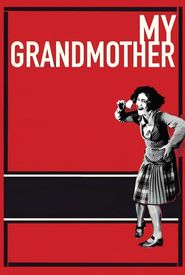Mikaberidze embarked on a distinguished career in the world of acting, commencing his tenure at the esteemed Kutaisi and Batumi theaters in 1918. Over the course of the next decade, he gradually transitioned to the Tbilisi drama studio, where he would go on to hone his craft and lay the foundation for a remarkable journey in the realm of cinema.
As early as 1921, Mikaberidze began to make a name for himself on the silver screen, taking on a variety of roles in films that showcased his impressive range and versatility as an actor. Meanwhile, his creative energies were also channeled into writing, as he penned his inaugural screenplay, "RTVELI" (The Harvest),a work that drew inspiration from the groundbreaking "Kino-Eye" concept pioneered by the renowned filmmaker Dziga Vertov.
Although "RTVELI" was submitted to the Tbilisi film studio in 1928, it unfortunately remained unproduced, leaving Mikaberidze's vision for this ambitious project unrealized. Nonetheless, this early foray into screenwriting served as a testament to his unwavering passion for the art of filmmaking and his commitment to pushing the boundaries of the medium.
1929 marked a significant milestone in the career of Mikaberidze, as it was the year in which he brought forth a silent film that would go on to leave an indelible mark on the world of Georgian avant-garde cinema.
The film, titled CHEMI BEBIA, or My Grandmother, was a satirical masterpiece that mercilessly lampooned the inefficiencies and bureaucratic red tape that had become all too familiar in Soviet society. Through its clever use of humor and wit, the film effectively skewered the excesses of the regime, and in doing so, cemented its status as a cornerstone of the Georgian avant-garde movement.
Despite its groundbreaking nature, CHEMI BEBIA was met with a rather more sinister reception from the authorities. The Soviet regime, seemingly intent on suppressing any dissenting voices, promptly banned the film for an astonishing 40 years. It was not until 1976, nearly half a century after its initial creation, that CHEMI BEBIA was finally released to the public, its satirical critique of bureaucracy once again able to find an audience.
Mikaberidze's cinematic journey spanned an impressive seven films, a testament to his boundless creativity and willingness to push the boundaries of storytelling. His oeuvre encompassed a diverse range of styles, forms, and aesthetics, showcasing his remarkable versatility as a filmmaker.
From the realm of non-fiction, Mikaberidze directed a thought-provoking short documentary, offering a glimpse into the world of fact-based storytelling. He also ventured into the realm of animation, crafting a captivating cartoon that delighted audiences of all ages.
However, it was his work in feature films that truly cemented his reputation as a master of his craft. Mikaberidze's feature films were a reflection of his innovative spirit, as he tackled complex themes and narratives with ease and aplomb.
One of the most notable achievements in Mikaberidze's filmography is his pioneering adaptation of an episode from the 12th century Georgian epic Vepkhistqaosani, also known as The Knight in the Panther's Skin. This ambitious project resulted in the 1936 film Kajeti, a groundbreaking work that brought a timeless classic to the big screen.
Through his work, Mikaberidze left an indelible mark on the world of cinema, inspiring generations of filmmakers to come. His legacy serves as a testament to his unwavering dedication to his craft, and his contributions to the art of filmmaking continue to be celebrated to this day.
Mikaberidze's illustrious film directing career unfortunately came to a halt in the year 1957, when he was unexpectedly sentenced to a two-year prison term due to his involvement in anti-Soviet activities and his vocal criticism of the film administration's policies.
Following his release from the labor camp, Mikaberidze was forced to seek alternative employment, and he eventually found a new career path as a dubbing director at the Tbilisi film studio.
In this new role, Mikaberidze was responsible for producing the Georgian language versions of a staggering number of films each year, with estimates suggesting that he worked on as many as 50 films per year.
Despite the challenges he faced, Mikaberidze continued to work in the film industry, albeit in a different capacity, and his contributions to the world of cinema were still significant, albeit in a different form.






















